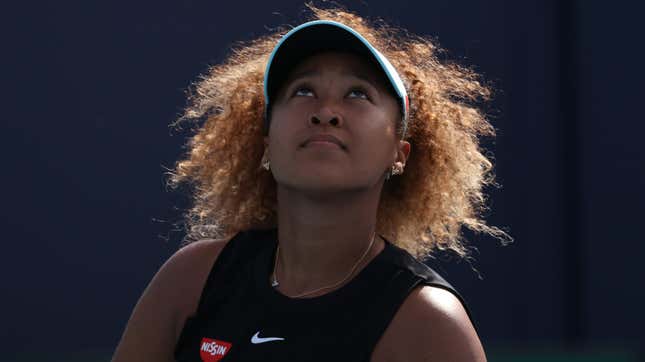Naomi Osaka’s Netflix Docuseries Ushers in a New Era of Elite Athlete
Osaka isn't just here to change the game of tennis, she's here to alter the sports world altogether
EntertainmentTV

When Naomi Osaka chose to bow out of the French Open in favor of her mental health, it felt like the first big strike against the American sporting complex. But her latest project, a self-titled, three-part docuseries on Netflix, feels like the first notes of a death knell. In this series, Osaka has gone beyond the press, beyond the tennis world, and beyond the parameters most athletes have surrounding them, to reach a global audience and tell her story with an unprecedented level of vulnerability and honesty. In three short episodes, she has torn down the wall between herself and the people who watch her and dared every single viewer to stand witness to the dark reality of becoming a champion. What is pivotal about that dare is that, once you’ve felt a shred of what Osaka has shared, there is no seeing tennis or any other sport the same way again.
Typically, a sports documentary follows a story of great triumph or great tragedy, like The Last Dance, Icarus, or Athlete A. But Naomi Osaka doesn’t take such a binary approach to its subject. Instead, the thread that ties all of the episodes together is Osaka herself—as opposed to her US Open 2020 win, which is discussed in the series finale. How she got to that specific win is irrelevant against the backdrop of Osaka’s full and, at times, lonely life. The series begins with Osaka after her historic defeat of Serena Williams at the 2018 Us Open, which was the springboard moment for Osaka’s career but also functions as an unfortunate moment of clarity. “For so long I’ve tied winning to my worth as a person,” Osaka says over footage of her losing matches after the 2018 win. “What am I, if I’m not a good tennis player?”
This fear of inadequacy permeates the entire series. In one scene, Osaka is sitting at a restaurant with her family celebrating her birthday. She leans over to her mother and asks, “Did you think by now I would have accomplished more?” Her mother is clearly taken aback by this question coming from her 22-year old, who by that point had beaten the greatest tennis player in the world and was named the highest-paid female athlete of all time.
-

-

-

-

-

-

-

-

-

-

-

-

-

-

-

-

-

-

-

-

-

-

-

-

-

-

-

-

-

-

-

-

-

-

-

-

-

-

-

-








































